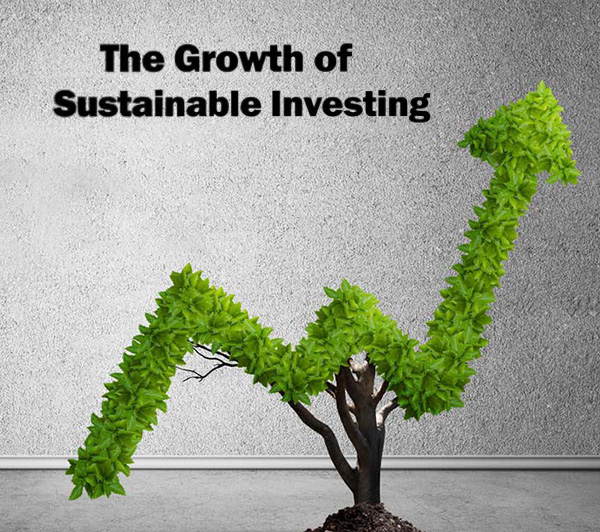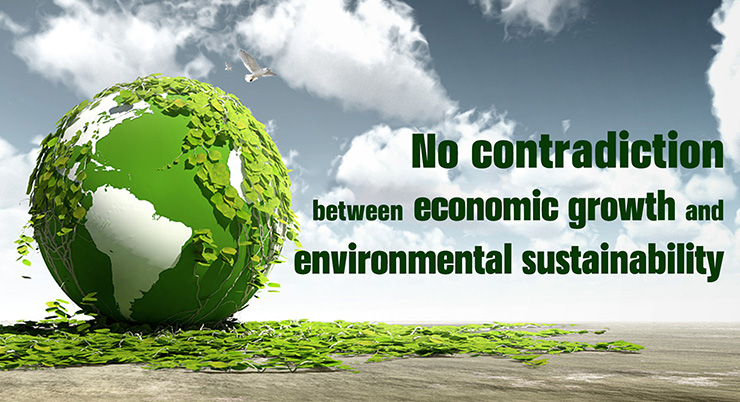

ESG REPORTING SERVICES
Turn ESG Theory into Action
ESG Reporting refers to the Disclosure of Data covering a Company’s Operations in three areas: Environmental, Social and Corporate Governance. It provides a snapshot of the Business’s Impact in these three areas for Investors, Customers and wider Stakeholders. Investors are increasingly considering ESG issues to help manage Investment Risks. Strong ESG Performance leads to Preferential Treatment from Investors compared to Companies whose Environmental or other Practices may pose a Greater Financial Risk. Robust Sustainability and ESG Strategies increase Business Resilience and help improve overall Company Performance. ESG practices can be as beneficial to Individual Companies as they are to Investors, and a focus on ESG can lead to Improvement and Harmonization of Management Practices. ESG means using Environmental, Social and Governance factors to evaluate companies and countries on how far advanced they are with sustainability. It provides a snapshot of the Business’s Impact in these three areas for Investors, Customers and wider Stakeholders. Investors are increasingly considering ESG issues to help manage Investment Risks. Strong ESG Performance leads to Preferential Treatment from Investors compared to Companies whose Environmental or other Practices may pose a Greater Financial Risk. Robust Sustainability and ESG Strategies increase Business Resilience and help improve overall Company Performance. ESG reporting is key to future-proofing your business success. It enables you to take proactive measures and adopt forward-thinking best practices to improve value. Our team of experts helps you in knowing what standards to use and identify relevant ESG data. We meet the entire process requirement and support companies regardless of their size, industry or sustainability experience. We help you make more informed decisions related to value and risk, set targets and improvement areas, benchmark industry best practices, complement sustainability reporting trends and macro data analysis.


IMPORTANCE OF ESG SUSTAINABILITY
Meaningful Change to Measurable Value
Companies are feeling increasing pressure to report and improve their ESG Data from both customers, investors and regulators. A strong and meaningful ESG program can set a vision for an organization’s environmental and societal influence, providing value both internally and externally. Establishing environmental goals can help reduce your carbon footprint, determine your sourcing strategy and set a foundation for how to eliminate unnecessary waste. From a social impact lens, you can build a meaningful diversity program, enhance employee health and make lasting changes in your community. And by building a strong governance foundation, you can diversify your board, enhance business ethics, increase stakeholder transparency and protect privacy. According to the European Green Deal, by 2050, all member states will have circular economies, having achieved net-zero emissions. While the European Union (EU) has a head start, the United States also has bold plans to de-carbonize the economy and aim for net-zero emissions target by 2050. Companies are already experiencing the financial consequences of failing to act on sustainability as many countries have implemented regulations, such as carbon taxes, and the financial and banking sectors have integrated ESG rules into their funding criteria. The only way stakeholders can avoid poor lending conditions and exclusion from capital markets is to show evidence of having developed robust sustainability and ESG strategies. In addition, the private equity market also includes sustainability and ESG criteria into its portfolio strategies. Private investors have realized that investing in companies with a robust and convincing ESG strategy positively affects ROI, reduces lending and revenue risks. Investors are increasingly considering ESG issues to help manage investment risks. ESG performance ratings and reports show investors a company’s efforts to mitigate risks and generate sustainable long-term financial returns. Furthermore, firms that have successfully implemented sustainability and ESG strategies tend to outperform the other top global companies.




SUSTAINABLE INVESTING
ESG Investing Trends
Traditional Investing delivers value by translating investor capital into investment opportunities that carry risks commensurate with expected returns. Sustainable investing balances traditional investing with Environmental, Social, and Governance (ESG) related insights to improve long-term outcomes. Investors who use ESG in their decision-making are able to invest sustainably while maintaining the same level of financial returns as they would with a standard investment approach. Sustainable investing, sometimes known as socially responsible investing (SRI) or impact investing, puts a premium on positive social change by considering both financial returns and moral values in investments decisions. This strategy emphasizes financial returns as a secondary consideration after the investors’ moral values have been accounted for in their decision-making. Environmental, Social and Governance (ESG) has emerged as much more than a responsibility. It’s an opportunity to build a more sustainable business and a key differentiator to enhance relevancy and trust with organization stakeholders. Built strategically, an ESG program creates valuable impact within your organization, your community and for the planet for years to come. Investors recognize that solving the climate crisis is one of the biggest challenges of this decade. Flows into ESG funds doubled from 2020 to 2021. That trend is poised to continue in the coming years, as a new report from Broadridge Financial Solutions predicts that ESG assets will tip $30 trillion by 2030. However, today's investors expect more in return and in returns. They expect these funds to provide competitive yield, and they want to know that companies are upholding their promises. In many ways, sustainable investing can be seen as part of the evolution of investing. There is a growing recognition among industry participants that some ESG factors are economic factors, especially in the long term, and it is, therefore, important to incorporate material ESG factors. Only responsible ownership and savvy implementation will deliver sustainability. They will also differentiate the winners from the losers.
ESG FACTORS
Environmental Social Governance Criteria

ENVIRONMENTAL
- Climate Change
- Carbon Emissions
- Air Emissions
- Water Pollution
- Biodiversity & Land Use
- Deforestation
- Energy Efficiency
- Waste Management
- Water Scarcity

SOCIAL
- Customer Satisfaction
- Data Protection & Privacy
- Gender & Diversity
- Employee Engagement
- Community Relations
- Health & Safety
- Chemical Safety
- Responsible Investment
- Human Rights & Labor Standards

GOVERNANCE
- Board Composition
- Bribery & Corruption
- Corporate Behavior
- Business Ethics
- Executive Compensation
- Tax Transparency
- Political Contributions
- Whistleblower Schemes
- Anti-Competitive Practices
benefits
Benefits of ESG Sustainability for Industries & Corporates
Strong ESG Programs can increase Stock Liquidity and help Unlock Competitive Value.
Improves the bottom line by routing the Investors Capital Flow towards Companies with strong ESG Practices.
ESG-Compliant Companies are considered safer and more stable by investors and consumers.
Investors are increasingly demanding their investments to abide by the ESG Sustainability Criteria.
Helps prepare the company for Ongoing Regulatory Checks and avoids Business Interventions.
Facilitates Operational Efficiencies, Less Waste, Improved Performance and Competitive Positioning.
Facilitates demonstration of Transparency and Good Governance to Investors.
Helps Build reputation and trust amongst Customers, Business Partners and Stakeholders.
Facilitates Sustainable growth to meet both Regulatory Requirements and Societal Expectations.
OUR ESG INITIATIVES
Environmental, Social and Governance Related Sustainability Initiatives

WATER CONSERVATION
We install low-flow fixtures and other water-saving technologies at Office Facilities to reduce water consumption and follow strict water conservation practices through ongoing employee training and awareness creation.

REDUCED ENERGY CONSUMPTION
We follow strict energy conservation practices and install Energy Star Rating Certified Appliances with Programmable Thermostat based Air Conditioners in our Office Facilities which help in increasing the energy efficiency from 10% to 50%.

REDUCED CARBON EMISSIONS
We are committed to protecting our planet by combating climate change, including contributing to a lower-carbon future. We update our lighting fixtures with LED lightbulbs to save energy and reduce annual CO2 emissions.

HEALTH & WELLNESS
We provide an above-market benefits compensation package to all full-time employees which includes an employer contribution toward each employee’s health insurance, paid holidays as well as flexible personal leave policies.

DIVERSITY
We cherish the diversity in our workforce and believe that supporting our team with an inclusive culture. We are an equal opportunity employer and observe strict anti-harassment and anti-discrimination policies.

GIVING BACK
We believe in supporting the communities in which we operate and invest in. We regularly supports philanthropic causes by donating to organizations dedicated to children’s services, animal welfare, housing, health care and research.
News
Keep updated with our News

LWG Gold Certificate Awarded to Sarg Tannery, Badr City, Cairo, Egypt
26 Jan 2022
11.32 AM
Sarg Tannery in Egypt has been awarded LWG Gold Certificate under Quantum Systems able guidance, which the company says is cementing its commitment to Sustainable Leather Production. The LWG GOLD Award received by Sarg Tannery at its plant in Robbiki Leather Complex highlights the relentless efforts made in terms of Environmental Sustainability Initiatives.
Read more →
Office Picnic and Annual Event organized at Banabithi Eco Resort at Ghatakpukur, West Bengal, India
06 Jan 2023
12.50 PM
After a long year and a half of remote work due to COVID, Quantumites gathered for our annual picnic to spend time with all the new and familiar teammates. So, to rejuvenate and boost the battery of all the Quantumites, and to mark the beginning of a new year, we arranged an Office Picnic & Annual Meet on 4th & 5th January 2023 at Banobithi, an amusing weekend Eco Resort.
Read more →
LWG Gold Certificate Awarded to Farida Prime Tannery Private Limited, Ambur, Tamil Nadu, India
16 Nov 2022
12.50 PM
Farida Prime Tannery Private Limited in Ambur, Tamil Nadu has been awarded the prestigious LWG Gold Certificate under Quantum Systems able guidance. Farida Prime which is leader in the manufacturing of sustainable and innovative leathers celebrated its third LWG GOLD Certification that highlights the company’s long track to continuous environmental improvement.
Read more →
LWG Gold Certificate Awarded to DSI Company Limited, Pocheon City, South Korea
15 Sep 2022
04.46 PM
DSI Company Limited in South Korea has been awarded the prestigious LWG Gold Certificate under Quantum Systems able guidance and supervision. This LWG Gold Medal joins the numerous System and Product Certifications obtained in the last 10 years, aimed at supporting more ethical corporate choices, which protect both workers and the environment.
Read more →
LWG Gold Certificate Awarded to Rahman Industries Limited, Kanpur, Uttar Pradesh, India
18 Jul 2022
02.45 PM
Rahman Industries Limited (RIL) in Kanpur has been awarded LWG Gold Certificate under Quantum Systems able guidance, which the company says is cementing its commitment to Sustainable Leather Production. The LWG GOLD Award received by RIL at its plant in the Unnao District of Kanpur, Uttar Pradesh highlights the relentless efforts made in terms of Sustainability Initiatives.
Read more →
LWG Gold Certificate Awarded to Dayanidhi Textiles Private Limited, Hayrana, India
13 Jul 2022
04.28 PM
Dayanidhi Textiles Private Limited in Hayrana has been awarded the prestigious LWG Gold Certificate under Quantum Systems able guidance and supervision. This LWG Gold Medal joins the numerous System and Product Certifications obtained in the last 5 years, aimed at supporting more ethical and conscious corporate choices, which protect both workers and the environment.
Read more →
LWG Gold Certificate Awarded to Alpha Stich-Art Private Limited, Kolkata, West Bengal, India
19 Aug 2021
12.30 PM
Alpha Stich-Art Private Limited has been awarded the prestigious LWG Gold Certificate under Quantum Systems able guidance. Alpha Stich-Art Private Limited which is leader in the manufacturing of sustainable and innovative leathers celebrated its First LWG GOLD Certification that highlights the company’s long track to continuous environmental improvement.
Read more →
LWG Gold Certificate Awarded to Hindustan Tanning Industries, Kolkata, West Bengal, India
21 Feb 2022
11.45 AM
Hindustan Tanning Industries has been awarded the prestigious LWG Silver Certificate under Quantum Systems able guidance and supervision. This LWG Silver Medal joins the numerous System and Product Certifications obtained in the last 5 years, aimed at supporting more ethical and conscious corporate choices, which protect both workers and the environment.
Read more →
LWG Gold Certificate Awarded to Vinit Gloves Manufacturing Private Limited, Kolkata, West Bengal
04 Apr 2021
02.05 AM
Vinit Gloves Manufacturing Private Limited has been awarded the prestigious LWG Gold Certificate under Quantum Systems able guidance. Vinit Gloves which is prominent leader in the manufacturing of sustainable and innovative leathers celebrated its Third LWG GOLD Certification that highlights the company’s long track to continuous environmental improvement.
Read more →
LWG Gold Certificate Awarded to Ah Tiam Tannery, Kolkata, West Bengal, India
03 Jan 2023
04.20 AM
Ah Tiam Tannery in Kolkata Leather Complex has been awarded the prestigious LWG Gold Certificate under Quantum Systems able guidance. Ah Tiam Tannery which is leader in the manufacturing of sustainable and innovative leathers celebrated its Third LWG GOLD Certification that highlights the company’s long track to continuous environmental improvement.
Read more →
LWG Gold Certificate Awarded to Titan Leathers Private Limited, Kolkata, West Bengal, India
28 Sep 2022
12.55 PM
Titan Leathers Private Limited has been awarded the prestigious LWG Gold Certificate under Quantum Systems able guidance. Titan Leathers Private Limited which is leader in the manufacturing of sustainable and innovative leathers celebrated its Second LWG GOLD Certification that highlights the company’s long track to continuous environmental improvement.
Read more →
LWG Gold Certificate Awarded to Crew BOS Products Limited, Manesar, Hayrana, India
30 Sep 2022
11.35 AM
Crew BOS Products Limited in Hayrana has been awarded the prestigious LWG Silver Certificate under Quantum Systems able guidance and supervision. This LWG Silver Medal joins the numerous System and Product Certifications obtained in the last 5 years, aimed at supporting more ethical and conscious corporate choices, which protect both workers and the environment.
Read more →@2021 Quantum Systems Management Private Limited ©
